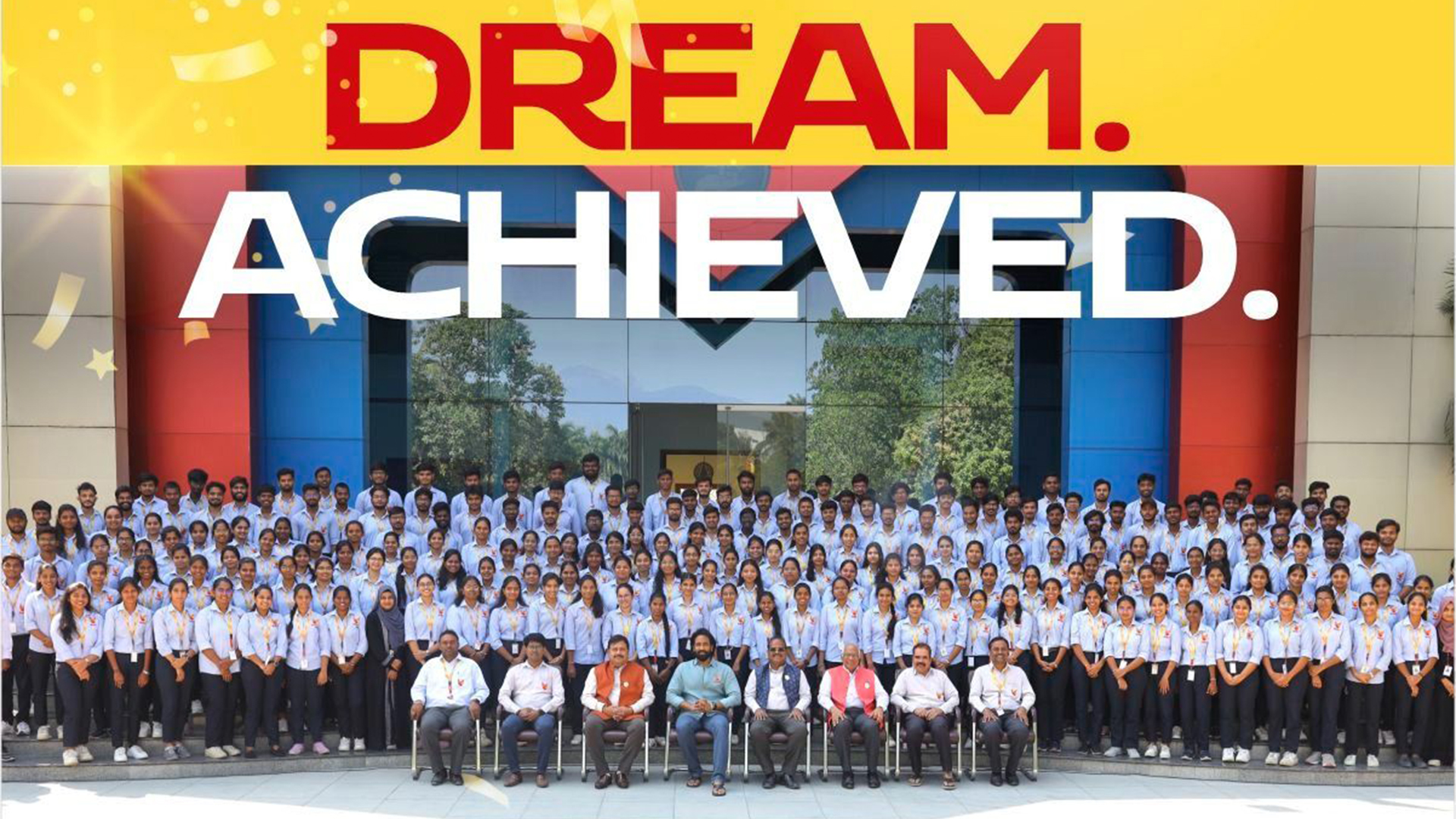Choosing between B.Tech Electronics and Communication Engineering (ECE) and B.Tech Computer Science and Engineering (CSE) can be a defining decision for technology-minded aspirants. This guide demystifies both paths—helping future engineers align academic choices with professional ambitions and emerging industry trends.
Introduction
India’s booming technology sector offers unparalleled opportunities for engineering graduates, especially in electronics and computer science fields. B.Tech ECE and B.Tech CSE stand as two flagship programs at Mohan Babu University (MBU), each empowering students with state-of-the-art curricular exposure, hands-on training, and career-ready skills.
- Focuses on electronic devices, digital and analog circuits, communications systems, and embedded technologies.
- Curriculum spans 160 credits and features core subjects such as Digital Signal Processing, Electronics Circuit Analysis, VLSI, Microcontrollers, and Image Processing.
- Offers research-driven pedagogy and specializations in Embedded Systems and IoT, plus capstone projects and internships for hands-on learning.
- Graduates excel in diverse sectors including defense, space research, telecommunications, IT, railways, power, and hardware manufacturing.
B.Tech Computer Science and Engineering (CSE) at MBU
- Focuses on computer systems, programming, software development, artificial intelligence (AI), and cybersecurity.
- Curriculum built on a fully flexible credit system covering programming languages (C, C++, Java, Python), algorithms, cloud computing, machine learning, blockchain, and more.
- Specialization tracks in AI, Data Science, and Cyber Security, with project work and industry internships ensuring practical exposure.
- Graduates thrive in IT, software, data analytics, fintech, cloud services, and global tech innovation.
Curriculum and Core Skills: ECE vs. CSE
| Feature | ECE at MBU | CSE at MBU |
|---|---|---|
| Focus | Electronics, circuits, communications | Software, coding, algorithms |
| Key Subjects | DSP, VLSI, Microcontrollers | Data Structures, AI, Machine Learning |
| Pedagogy | Research-driven labs, internships | Flexible system, coding internships |
| Specialization | Embedded Systems & IoT | AI, Data Science, Cyber Security |
| Outcome | Hardware & Communication Engineering | Software Development & IT Careers |
ECE: Skills and Learning Outcomes
Graduates master hardware, circuit design, signal processing, wireless communications, and embedded systems. Skills include:
- Embedded programming, network engineering, digital analysis.
- Hands-on experience via labs and real-world projects.
- Adaptability for innovation in hardware and communications.
CSE: Skills and Learning Outcomes
Students develop expertise in:
- Programming (Python, Java, C++), software development, and algorithmic thinking.
- Data analysis, cloud infrastructure, cybersecurity, and AI.
- Industry exposure through global internships and flexible academic tracks.
Career Prospects and Industry Demand
ECE: Job Roles and Sectors
MBU ECE graduates work in:
- Defense and Space Research
- Telecommunications and Network Engineering
- Electronics Manufacturing (circuit boards, chips, hardware)
- Embedded Systems (IoT devices)
- Software roles (if skilled in programming)
Notable recruiters: IT consultancies, hardware manufacturers, telecom giants, government agencies.
CSE: Job Roles and Sectors
MBU CSE graduates are equipped for:
- Software Development and Engineering
- Data Science and Analytics
- AI and Machine Learning Product Teams
- Cybersecurity and Blockchain Solutions
- Cloud Architecture
Notable recruiters: Tech MNCs, startups, e-commerce, fintech, and AI leaders.
| Career Path | ECE Major Roles | CSE Major Roles |
|---|---|---|
| Electronics Engineering | Embedded Systems, Circuit Design, Network, Telecom | Software Development, Data Science, Cloud Computing |
| IT / Software | Coding, System Programming (optional) | Frontend, Backend, Mobile Apps, AI/ML |
| Emerging Sectors | IoT, Robotics, 5G, Renewable Energy | AI, Machine Learning, Data Analytics, Cybersecurity |
Emerging Technologies and Specializations ECE Trends
- Internet of Things (IoT)
- 5G/6G Networks
- Embedded Systems
- Robotics and Automation
- Smart Devicest
CSE Trends
- Artificial Intelligence (AI) & Machine Learning (ML)
- Cloud Computing
- Big Data Analytics
- Cybersecurity
- Virtual/Augmented Reality
Higher Studies and Global Mobility
Both ECE and CSE prepare students for competitive postgraduate opportunities (M.Tech, MS, PhD) and research positions in top Indian and global universities:
- ECE: Specializations in VLSI, communication systems, robotics, embedded technology.
- CSE: Advanced research in AI, ML, cyber security, data science.
Which Is Right for Your Tech Ambitions? Choose ECE if:
- Fascinated by electronics, hardware, telecommunications, robotics, and IoT.
- Wish to contribute to India’s defense, space, and infrastructure sectors.
- Value hands-on excellence and cross-disciplinary versatility.
Choose CSE if:
- Aspiring for a future in coding, software, AI, big data, and digital solutions.
- Drawn to fast-growing tech industries, innovation hubs, and global mobility.
- Passionate about building scalable applications and leading digital transformation.
Why Mohan Babu University (MBU)?
MBU’s B.Tech programs stand out for:
- Research-driven curriculum and expert faculty.
- Strong placement and industry ties in both fields.
- Flexible credits for specialization, hands-on labs, and capstone internship experiences.
For those ready to shape the digital future, B.Tech Electronics and Communication Engineering and B.Tech Computer Science and Engineering at MBU are transformative gateways to tech leadership and innovation.
Frequently Asked Questions (FAQs)
Q1: Can ECE graduates switch to software jobs?
Yes. ECE covers programming fundamentals, enabling a seamless switch to software, especially for students who master coding and digital logic.
Q2: Which degree offers better salaries?
CSE jobs, owing to their abundance in IT and global demand, typically offer higher starting salaries, but ECE roles in advanced electronics and telecom can be highly lucrative.
Q3: What makes MBU’s engineered programs unique?
Industry-driven curriculum, global internships, research opportunities, and expert mentorship define the difference—ensuring MBU graduates are future-ready, whether in electronics, communication, or computer science domains.







